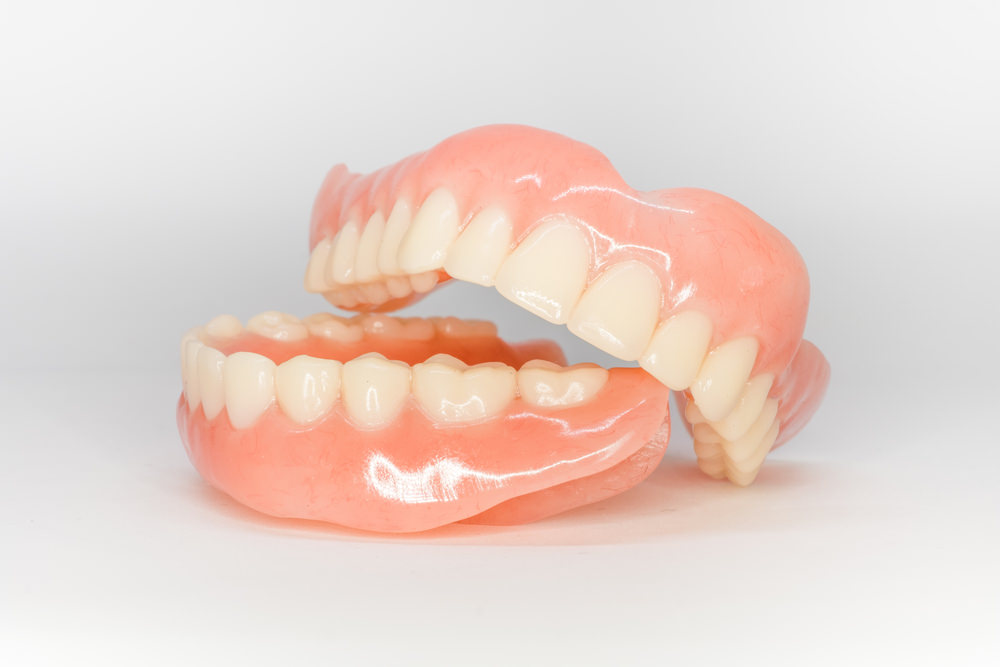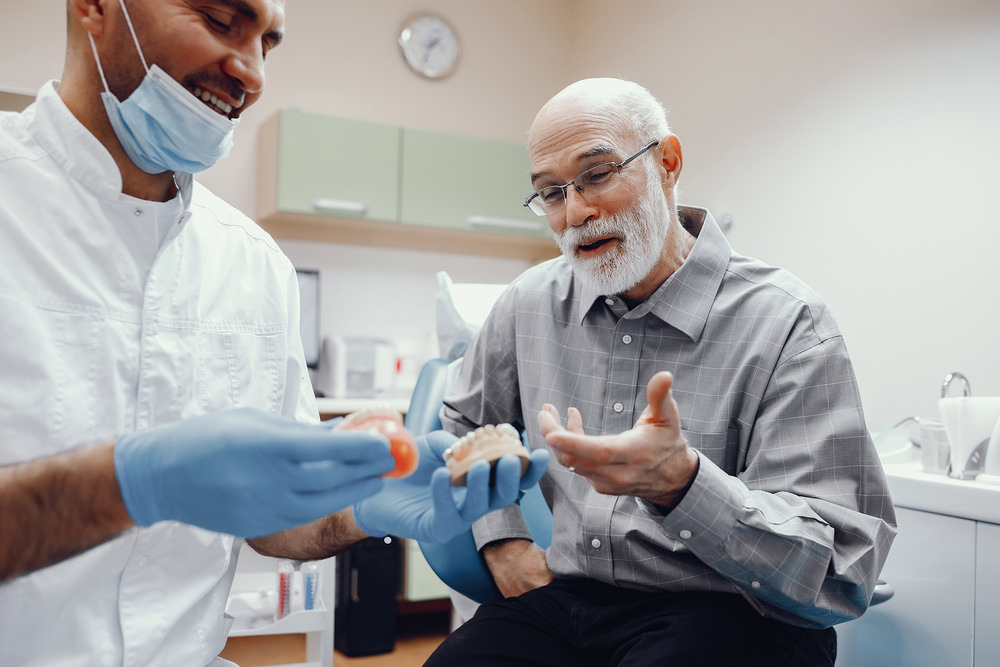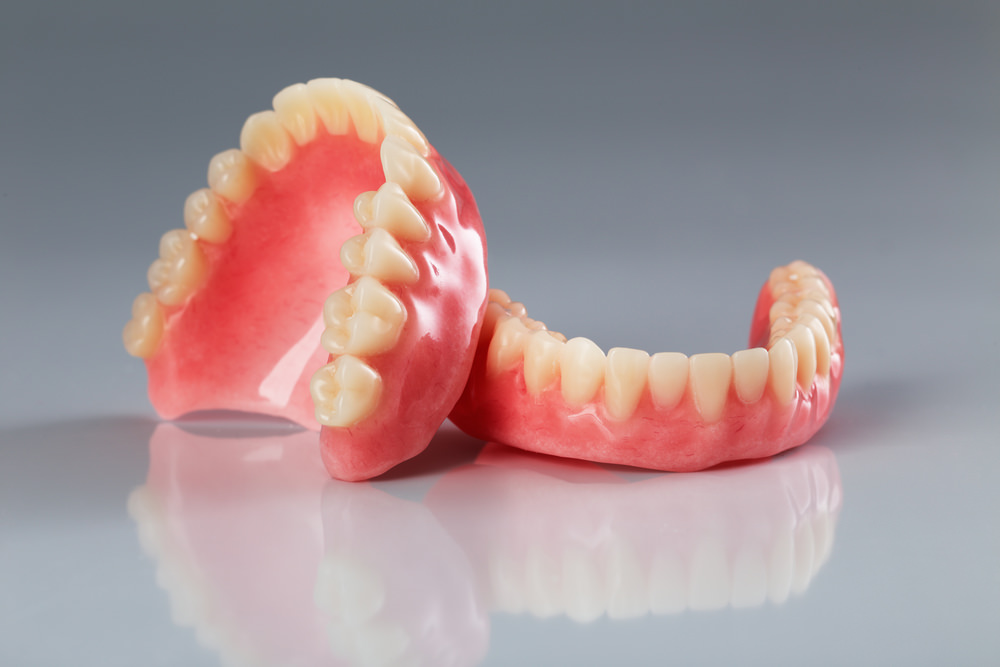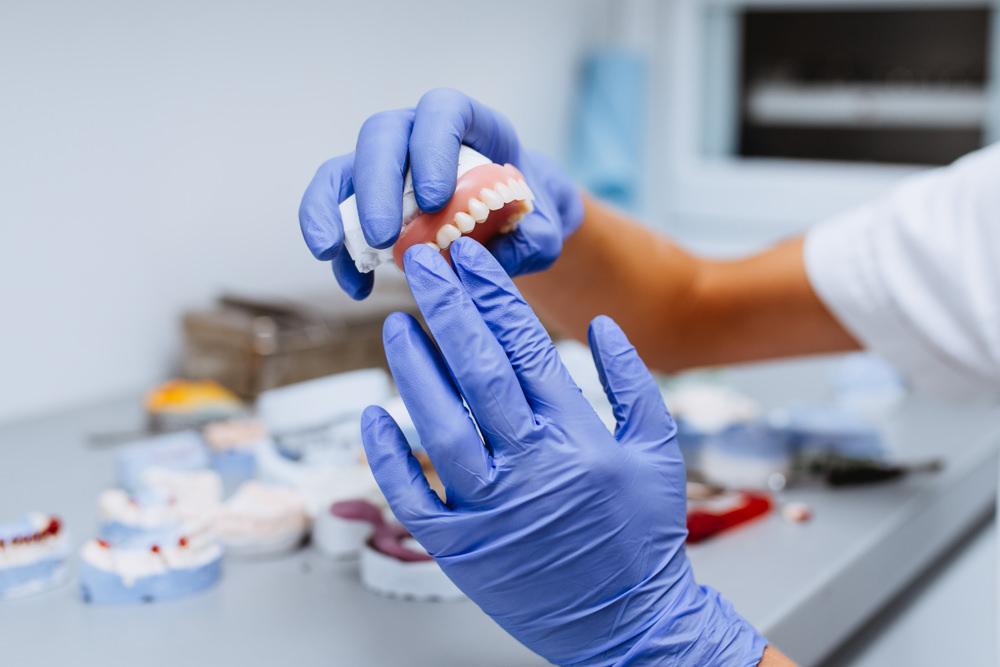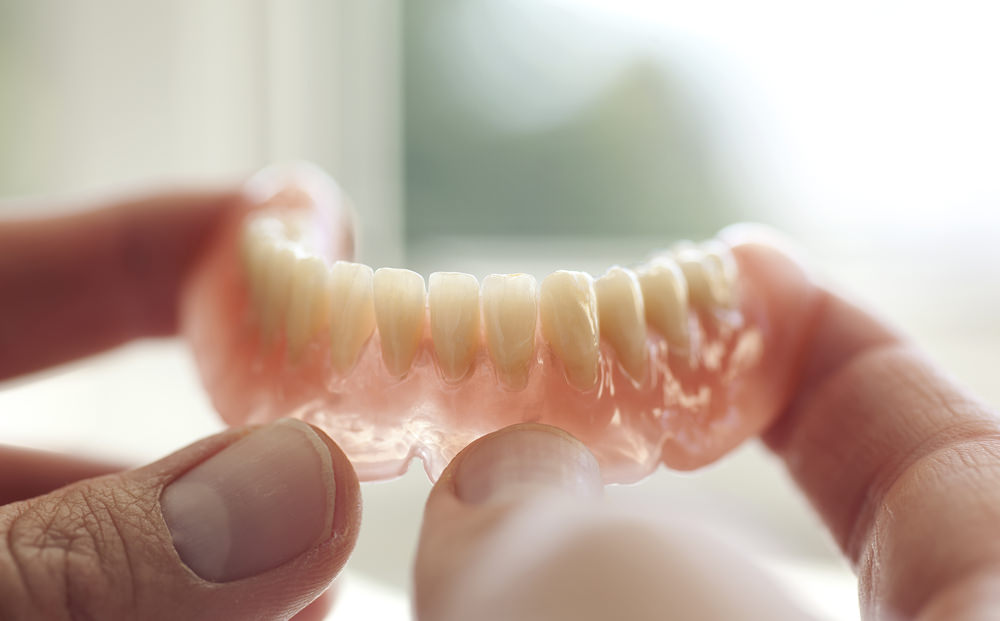Denture Stomatitis – Treatment Tips and More!
If you have or are considering getting dentures, this information may help you.
There is a condition know as Denture stomatitis which is when the soft tissues of the mouth are covered for a prolonged period, causing areas of your gums to become inflamed.
It is caused by Candida albicans – it is a yeast or fungus that also causes oral thrush.
We all have some Candida (thrush) in our mouths.
But when the balance between the bacteria and the fungus in the mouth is unbalanced then the fungus could become overgrown and may affect the mouth of those who wear dentures.
This is denture stomatitis in a nutshell.
There are a few ways to treat this condition.
The best way is to leave the denture out of the mouth to relieve the soft tissues from the pressure and allow the soft tissues to be inhabited by the bacteria of the mouth.
Another way is to treat it with natural remedies.
One of the factors that may cause denture stomatitis is ill-fitting dentures so it is advisable to have the fit checked and evaluated periodically.
How to Best Treat Denture Stomatitis?
Treating denture stomatitis is important.
If left untreated, it can cause your mouth to become sore, and may lead to your dentures not fitting well in the future.
The best way to treat denture stomatitis involves using the ways in which it can be prevented.
That is, maintaining good dental hygiene and can both treat and prevent denture stomatitis.
Taking notice of your diet and ensuring that your nutrition and hydration is optimal as your diet and hydration can affect the microbiome of your mouth.
The microbiome of the mouth has an array of bacteria, fungus and other organisms living happily if balanced.
Having a diet high in acidic foods, sugar and starches may begin to feed the destructive bacteria and also cause an increase of the growth of the Candida flora.
In the mouth, you will normally have Candida albicans, but poor dental hygiene and insufficiently cleaning your teeth will also promote their growth, thus causing denture stomatitis.
So, treating stomatitis includes:
Good Dental Hygiene
Consistent dental hygiene is a must.
Let’s have a look at these habits in detail:
- Keeping your mouth as clean as possible by rinsing it and your dentures after eating.
- Brushing your teeth at least twice daily.
- Flossing or using an interdental brush at least once per day.
- If you smoke, trying to quit or cut back, as smoking can stimulate the growth of the yeast infection.
- Staying well-hydrated by drinking a satisfactory amount of water (unless you have a medical condition that does not allow you to do so).
- Breathing correctly – Breathing through your nose helps to boost and maintain the amount of saliva in your mouth, keeping it at the level it’s meant to be. Whereas breathing through your mouth reduces levels of saliva, causing your mouth to become dry.
Correct Denture Wear
The other thing is to keep them as clean as possible.
A typical routine looks like this:
- Removing your dentures at night time – advances the tissues healing process, and prevents more bacteria from growing in the region.
- Avoiding certain foods, or only eating them in moderation – These include sticky foods such as peanut butter, foods with hard, little pieces like popcorn or anything with sesame seeds, and other hard foods like apples, nuts, corn on the cob or carrot.
- Clean your dentures at least twice a day – Look after them just as you would your teeth by cleaning them thoroughly before you go to bed, in the morning, and perhaps also after eating.
- Clean your dentures carefully – The general rule is to brush, then soak them in a solution specifically for dentures such as Sterident or polident, and then brush them once more. Always brush over a bowl of water or a clean towel, a provision against dropping them. Also, be careful not to brush too hard as you may damage them.
If you keep your dentures out of your mouth as much as you can, especially during the night, and improve your dental hygiene, it has been reported that some cases have rectified within two weeks.
But, if good dental hygiene and taking careful care of your dentures have not helped, you can consult your Dentist.
If they confirm you have denture stomatitis, they can give you further treatment.
There are a few different treatments available, including:
Medication
You may be given a lozenge or tablet to suck on, for up to one month.
Or you may be prescribed a topical anti-fungal cream for your palate and an antiseptic mouthwash.
These will strengthen your fight against fungi.
Denture deep cleaning
Some people get tartar built-up on their dentures, just as you can on your teeth.
Dental clinics may offer deep cleansing machines to remove this, as you can find this difficult to get rid of yourself.
After this treatment, your dentist may want to check your mouth to ensure everything has resolved.
After all, prevention is better than cure, so regularly attending dental check-ups will make sure your dentures remain hygienic and fit adequately.
If the stomatitis has not improved, even with the assistance of a professional, they may suggest you get further treatment.
In some cases, you may need to continue treating your mouth for long periods of time.
It may also mean a thorough check to ensure that your symptoms are not being caused by other conditions such as:
- Type II Diabetes.
- Vitamin deficiency, or
- A weakened immune system, such as in people who have HIV or have undergone chemotherapy.
- Stomach reflux
- pH of the saliva
- allergies
- nutritional deficiencies affecting the soft tissues
What Does Denture Stomatitis Look Like?
If you look at your mouth lining that is in contact with your denture, it will be red and inflamed, and sometimes you may have small red dots.
Advanced cases will show white lesions.
If you take off your denture, check the area to see if your palate has a reddish look that is in a similar shape to your denture.
Best Natural Ways to Treat New Dentures
It is highly important to take good care of your dentures.
One reason?
It can help prevent denture stomatitis.
If you already clean your dentures regularly, you may wish to add a cleaning agent!
By adding in natural cleaning methods you can help naturally kill the destructive pathogens thus protecting you and your dentures.
So, here are some of the best natural ways to treat your new dentures:
Put them in your microwave
Research has found that the bacteria MSRA can be effectively killed in the microwave, by Microwaving your dentures for 3 minutes, once per week.
The heat produced by your microwave can kill bacteria and sanitize dentures.
However, it is important to note that this should not be used in place of actually cleaning your dentures.
NOTE – Also, if you have metal in your dentures, keep them out of the microwave.
Vinegar
A mixture of half white vinegar and half warm water can break down the tartar that has built up on dentures if used consistently.
This is as the vinegar contains an aid which, given time, will make the tartar disintegrate.
Let your dentures soak in this mix for a minimum of 30 minutes, or for best results, overnight.
Be sure that you rinse them completely with clean water before you put them back in your mouth.
Baking Soda
Baking soda is great at getting stubborn debris to detach from dentures.
You can make a natural toothpaste by mixing 2 teaspoons of baking soda with as much water as you like, so it forms a smooth paste.
Once a day you can use a soft-bristled toothbrush to gently scrub any debris from your dentures.
3% Peroxide
Soaking in 3% peroxide will also kill the destructive pathogens while promoting the beneficial bacteria.
It is important to also note what NOT to do.
This includes using bleaching products. A very big no, no.
These can weaken your dentures and permanently discolour them, making them look unpleasant.
Should You Get New Dentures?
Wearing dentures is a very personal matter.
Some patients love their dentures and may wear them for decades.
Changing the fit and style may become a psychological issue and may cause rubbing and a change of habit.
So if you are happy with your denture and it does not cause any other problem it is a matter of personal choice if you wish to change your denture.
As with denture stomatitis, first of all, the denture itself will be harbouring all of the adverse pathogens, so you must be sure it is cleaned thoroughly to prevent it from re-infecting your mouth.
Using the correct methods it is possible to rid your denture from these invading microorganisms.
After your treatment is complete and your symptoms have cleared, you should have your Dentist perform an examination of your mouth.
They will need to assess what condition your denture is in, and also see if it’s still fitting well.
If it is in poor condition or not fitting correctly, it may need relining, refitting, or yes, replacing.
Are There “Better” Dentures to Use in Order to Prevent Denture Stomatitis?
For many years, dentures used to be the only treatment option that there was available for those with missing teeth.
While still a treatment option that is commonly used, there is a growing trend towards fixed or removable prosthetic restorations, such as “All on 4” implants or bridges.
All options have both their advantages and disadvantages – the main benefit of dentures being that they are the least expensive of the lot.
For further information on the upsides and downsides of each option, you can read my blogs below:
Dentures vs. Bridges – What are the Differences, and which one is the Winner?
All on 4 Dental Implants – Advantages and Disadvantages Discussed
Conclusion
Denture stomatitis is common amongst those who wear dentures, with more than 50% of people being affected in some places.
This makes it the most frequently seen dental condition that develops in the mouth of those who wear dentures.
It is most often seen in the elderly or those who wear a complete upper denture.
This is why it is so important that you practice good dental hygiene and take precautionary care of your dentures by cleaning them adequately, wearing them appropriately, and so on.
If you have dentures and would like to learn more about taking care of them, feel free to read my posy – Your Dental Guide to Dentures.
By Dr. V
Created at July 12, 2021, Updated at January 25, 2025


